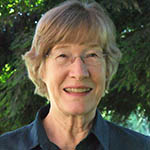 Graduate student Rachael Farina was invited by the Hartford Gay and Lesbian Health Collective to lead an online discussion about pornography literacy.
Graduate student Rachael Farina was invited by the Hartford Gay and Lesbian Health Collective to lead an online discussion about pornography literacy.
Month: February 2022
Kari Adamsons featured in UConn Today for HDFS 1060 class
 Associate Professor Kari Adamsons was featured in UConn Today in the Coveted Class column for her teaching of HDFS 1060, Close Relationships Across the Lifespan. Read the article here.
Associate Professor Kari Adamsons was featured in UConn Today in the Coveted Class column for her teaching of HDFS 1060, Close Relationships Across the Lifespan. Read the article here.
Alumni Elise Siegel featured in UConn Today for love story
Alumni Elise (Berman) Siegel, BA ’89, was featured in UConn Today in an article about eight couples who met at UConn more than 30 years ago, and are still married. You can learn more about Elise and the other couples, here: Read the article here. Also note that Elise is Eva Lefkowitz’s cousin, and when Eva first told her about becoming the HDFS department head at UConn, Elise mentioned that she remembered taking HDFS 1070 in the 1980’s from a young new professor, Ron Sabatelli.
Emily Simpson takes assistant professor position at ECU
Ryan Watson launches national survey
 UConn Today highlighted Associate Professor Ryan Watson’s launching of a new national survey on sexual and gender diverse teens in collaboration with the Human Rights Campaign. Read the article here.
UConn Today highlighted Associate Professor Ryan Watson’s launching of a new national survey on sexual and gender diverse teens in collaboration with the Human Rights Campaign. Read the article here.
Laura Donorfio featured in AGHExchange, January issue
 Associate Professor Laura Donorfio was featured in the January issue of the AGHExchange in their Faculty Spotlight column. Laura was asked to share some of her key pedagogical considerations when teaching students about aging, how her approaches have changed over the years, and what advice she would give to new faculty teaching an aging course for the first time. (January 2022; 45(1).
Associate Professor Laura Donorfio was featured in the January issue of the AGHExchange in their Faculty Spotlight column. Laura was asked to share some of her key pedagogical considerations when teaching students about aging, how her approaches have changed over the years, and what advice she would give to new faculty teaching an aging course for the first time. (January 2022; 45(1).
Ellen Pudney accepts assistant professor position at EVMS
Sara Harkness mentioned in BBC reel
 Professor Sara Harkness was mentioned in a January 20 BBC reel on “How society pressures shape motherhood.” The reel featured an interview with CHHD Associate Director Saskia van Schaik, on Dutch parenting.
Professor Sara Harkness was mentioned in a January 20 BBC reel on “How society pressures shape motherhood.” The reel featured an interview with CHHD Associate Director Saskia van Schaik, on Dutch parenting.
Kim Gans, HDFS Faculty Spotlight, February 2022
Professor
 Kim Gans is a nutritionist and behavioral health researcher. She is primarily interested in intervention development and evaluation research in community-based settings to improve diet, physical activity and/or weight. The majority of her research has been with ethnic minority, low income and/or low literate populations. Much of her research includes multi-level approaches to improve diet and/or physical activity through changing home, work, school, childcare, and neighborhood nutrition and physical activity environments in conjunction with behavioral interventions. Her research has also focused on applications of innovative health technology, particularly computerized tailoring using print, video, web and/or texting. Another emphasis of her work is on translational research to study the dissemination of effective interventions to various community and clinical settings. Kim is also an expert in intervention mapping, a step-wise protocol for developing theory- and evidence-based health promotion programs and has collaborated on designing interventions for cytomegalovirus prevention, HPV vaccine promotion, violence prevention, and social isolation among others.
Kim Gans is a nutritionist and behavioral health researcher. She is primarily interested in intervention development and evaluation research in community-based settings to improve diet, physical activity and/or weight. The majority of her research has been with ethnic minority, low income and/or low literate populations. Much of her research includes multi-level approaches to improve diet and/or physical activity through changing home, work, school, childcare, and neighborhood nutrition and physical activity environments in conjunction with behavioral interventions. Her research has also focused on applications of innovative health technology, particularly computerized tailoring using print, video, web and/or texting. Another emphasis of her work is on translational research to study the dissemination of effective interventions to various community and clinical settings. Kim is also an expert in intervention mapping, a step-wise protocol for developing theory- and evidence-based health promotion programs and has collaborated on designing interventions for cytomegalovirus prevention, HPV vaccine promotion, violence prevention, and social isolation among others.
Kim has been interested in health for as long as she can remember. She loved to watch medical shows on TV from a young age. She began her college education as a first generation college student with an interest in medicine and majored in Biology as an undergraduate at Duke University. While there, she took an interdisciplinary course called Perspectives on Food and Hunger that excited her about nutrition and changed the trajectory of her career. Instead of medical school, she decided to get an MPH degree in nutrition at the University of North Carolina-Chapel Hill School of Public Health. Her first job after graduation was working for the WIC program at Health Center #6 in Philadelphia and then she joined the Pawtucket Heart Health Program, one of three NIH-funded community-based heart disease prevention projects in the US. While working, she went back to school part-time at the University of Rhode Island to get her PhD in Nutrition. Upon graduation, she became an Assistant Professor (Research) in Community Health at Brown University, which later became the Brown School of Public Health. Kim was on the Brown faculty from 1992-2014 and also served as deputy director and later director of the Brown Institute for Community Health Promotion. In 2014, she joined the faculty in the Department of Human Development and Family Sciences at UConn.
Kim has served as a principal investigator, co-investigator, or faculty mentor on over 50 grants funded by NHLBI, NCI, NICHD, NINR, NIMHD, NIDDK, CDC, USDA, multiple foundations, and state agencies. She has published 120 peer reviewed articles and book chapters. She has also developed numerous educational materials, programs, and dietary assessment tools for the public and providers. Kim is an avid collaborator who enjoys creating multidisciplinary research teams, and a passionate mentor – serving as primary mentor for junior faculty on 4 K grants, 4 diversity supplements, and co-mentor on many more. She won the Institute for Collaboration in Health, Interventions and Policy (InCHIP) Faculty Mentoring award in 2020.
At the national level, Kim has been in leadership roles for the American Public Health Association, American Heart Association, International Society for Behavioral Nutrition and Physical Activity, and Nutrition and Obesity Policy Research and Evaluation Network. She has been on the editorial board for two journals and served as a reviewer for 28 other journals. She also has reviewed multiple grant proposals for NIH, USDA, foundations and international federal agencies. Locally, she has been in leadership roles for the Multiple Sclerosis Society, RI Food Policy Council, and RI Hunger Elimination Task Force. She also serves as Director of Community Engagement for Brown School of Public Health.
Outside of work, Kim enjoys spending time with her family and golden doodle Jasmine, reading books (she has been in the same book club since 1986), genealogy research, wine-tasting, crossword puzzles, connecting with her Mom Squad over good food and wine, and exercising, especially boxing and walks on the beach.
Benton Renley, B.A., HDFS Grad Student Spotlight, February 2022
 Benton Renley joined the UConn Human Development and Family Sciences Department in Fall 2021 as a first-year doctoral student. Ben, though, is no stranger to UConn HDFS as he graduated with dual Bachelor of Arts degrees from UConn in Psychological Sciences and Human Development and Family Sciences with a minor in Women’s, Gender, and Sexuality Studies in 2020. As an undergraduate, he completed most of his courses at the UConn Stamford campus. He treasures UConn Stamford as well as his springtime walks through the cherry tree grove (the largest one in New England) across the street in Mill River Park.
Benton Renley joined the UConn Human Development and Family Sciences Department in Fall 2021 as a first-year doctoral student. Ben, though, is no stranger to UConn HDFS as he graduated with dual Bachelor of Arts degrees from UConn in Psychological Sciences and Human Development and Family Sciences with a minor in Women’s, Gender, and Sexuality Studies in 2020. As an undergraduate, he completed most of his courses at the UConn Stamford campus. He treasures UConn Stamford as well as his springtime walks through the cherry tree grove (the largest one in New England) across the street in Mill River Park.
As an Honors Scholar, Ben completed an Honors thesis in HDFS with Dr. Kari Adamsons. His research focused on dimensions of identity and self-identification of disability among emerging adults diagnosed with anxiety and depression disorders. During this time, he discovered an affinity for the research process as he liked having an avenue to pursue questions that lacked answers. Ben also began to work with Dr. Annamaria Csizmadia as her research assistant to examine the associations between family acceptance and psychological adjustment among biracial LGBTQ+ youth. Fortuitously, this research utilized data from the LGBTQ+ National Teen Survey conducted by Dr. Ryan Watson.
Ben now works with Dr. Watson and the other members of the SHINE (Sexuality, Health, and INtersectional Experiences) lab to study health disparities among sexual and gender diverse (SGD) individuals. Ben is particularly interested in understanding how mental health outcomes and health behaviors of SGD youth and young adults differ across combinations of overlapping identities. In the year ahead, he looks forward to working with the SHINE lab to launch another iteration of the national survey on LGBTQ+ teens. Participating in this process from the early stages will allow him to really learn what goes into executing research on this scale.
Ben is delighted and excited to continue his academic journey at UConn surrounded by the steadfast support and abundant knowledge of mentors, colleagues, and friends. When he’s not taking copious course notes, he may be found playing notes of the musical variety on his electric guitar.

